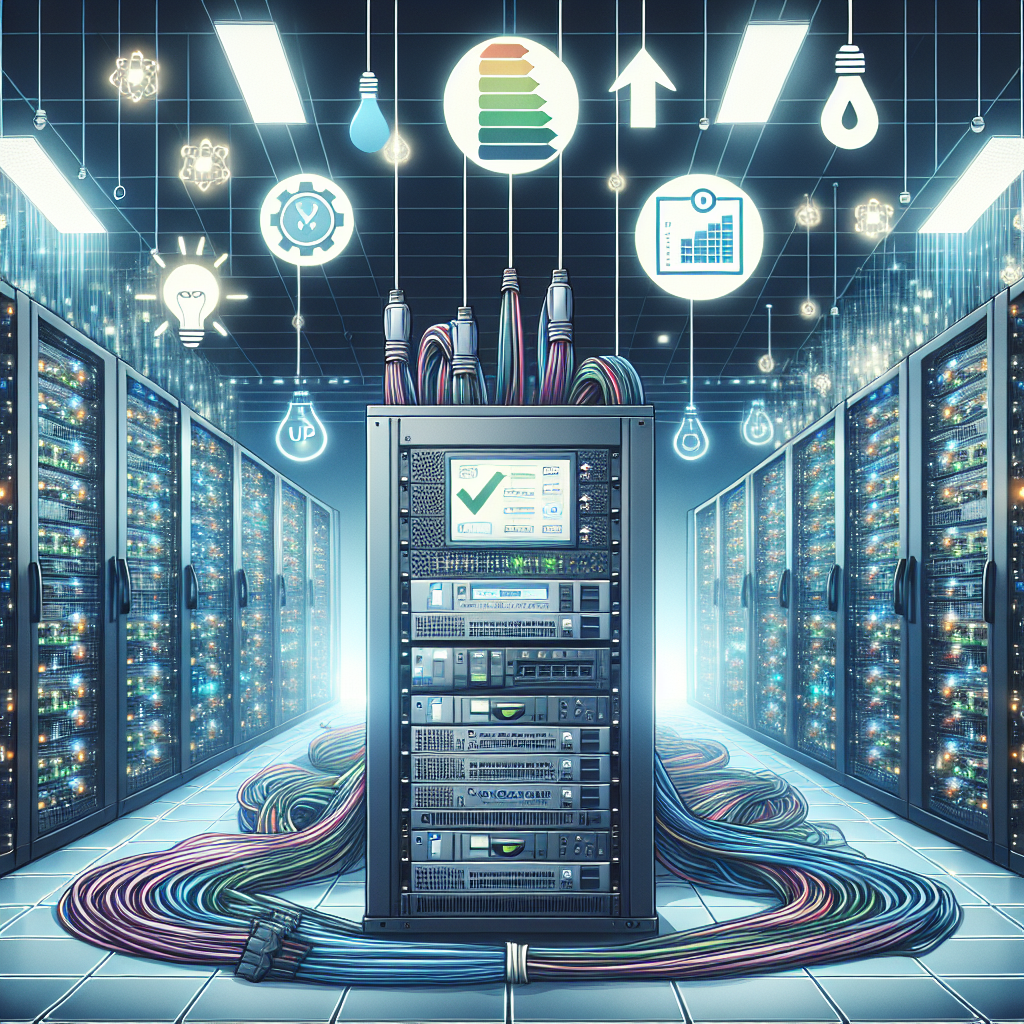Fix today. Protect forever.
Secure your devices with the #1 malware removal and protection software
In today’s digital age, data centers are the backbone of any organization’s operations. These facilities house critical equipment that stores, processes, and distributes data, making them essential for businesses to operate efficiently. As data centers continue to grow in size and complexity, it is more important than ever to ensure that they are running at peak efficiency.
One way to maximize data center efficiency is by implementing uninterruptible power supply (UPS) systems. UPS systems provide backup power in the event of a power outage, ensuring that critical equipment remains operational and data is not lost. By incorporating UPS systems into their data center infrastructure, organizations can enhance reliability, protect against downtime, and improve overall performance.
To help organizations get the most out of their UPS systems, here are some tips and best practices for maximizing data center efficiency:
1. Conduct a thorough assessment of power needs: Before implementing a UPS system, it is important to assess the power requirements of the data center. This includes determining the load capacity, voltage requirements, and runtime needed for critical equipment. By understanding these factors, organizations can select the right UPS system that meets their specific needs.
2. Choose the right UPS system: There are various types of UPS systems available, each with different features and capabilities. Organizations should carefully evaluate their options and choose a UPS system that is best suited for their data center environment. Factors to consider include capacity, efficiency, scalability, and redundancy.
3. Implement energy-saving strategies: UPS systems are essential for ensuring power reliability, but they can also consume a significant amount of energy. To maximize efficiency, organizations should implement energy-saving strategies such as consolidating loads, optimizing cooling systems, and utilizing energy-efficient UPS models. By reducing energy consumption, organizations can lower operating costs and minimize their environmental impact.
4. Regularly maintain and monitor UPS systems: Like any other piece of equipment, UPS systems require regular maintenance and monitoring to ensure optimal performance. Organizations should establish a maintenance schedule, conduct routine inspections, and monitor UPS performance to identify any potential issues. By proactively addressing maintenance needs, organizations can prevent downtime and extend the lifespan of their UPS systems.
5. Plan for scalability and redundancy: As data center needs evolve, organizations should plan for scalability and redundancy in their UPS systems. This includes considering future growth, implementing modular UPS systems that can be easily expanded, and incorporating redundant systems to ensure continuous power availability. By planning for scalability and redundancy, organizations can future-proof their data center infrastructure and avoid costly upgrades down the line.
In conclusion, maximizing data center efficiency with UPS systems is essential for ensuring reliable power supply, protecting critical equipment, and improving overall performance. By following these tips and best practices, organizations can optimize their UPS systems and enhance the efficiency of their data center operations.
Fix today. Protect forever.
Secure your devices with the #1 malware removal and protection software

Leave a Reply
You must be logged in to post a comment.